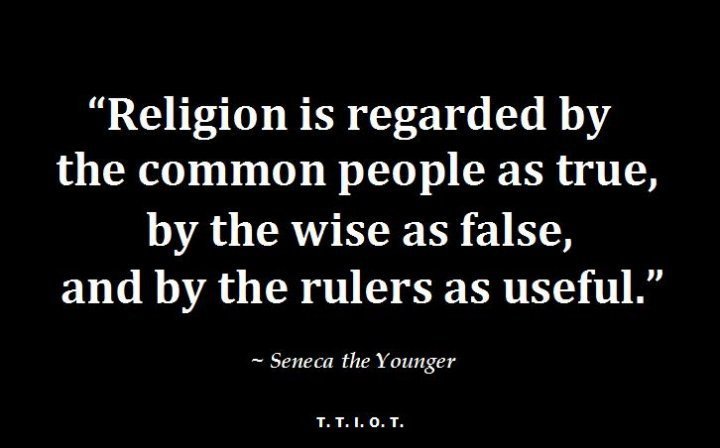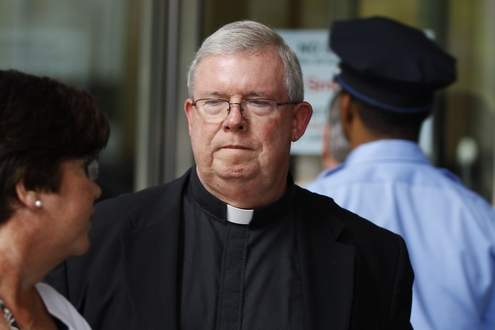A string of Roman Catholic priests testified Wednesday in a landmark clergy-abuse case, saying they reported fellow priests to the archdiocese after finding them with pornography or in unhealthy relationships with children.
 The priests, uncomfortably, are prosecution witnesses in the trial of a longtime supervisor in the Philadelphia archdiocese, Monsignor William Lynn. The former secretary for clergy is charged with endangering children by allegedly helping the church cover up abuse complaints.
The priests, uncomfortably, are prosecution witnesses in the trial of a longtime supervisor in the Philadelphia archdiocese, Monsignor William Lynn. The former secretary for clergy is charged with endangering children by allegedly helping the church cover up abuse complaints.
The Rev. Joseph Okonski told jurors Wednesday that he found pornographic magazines and videos, and a sexually explicit letter to a seventh-grade boy, in another priest’s bedroom in 1995.
The graphic letter, which purported to be from a classmate, asked if the boy wanted oral sex. The author said he fantasized about seeing the boy getting spanked by his father. The boy was told to write “Yes” on a bulletin board at the parish school if he wanted to engage in sex acts with his “secret lover.”
Okonski said his housemate admitted writing the letter and soon left the parish. But the next trial witness said the priest landed at his rectory, where he worked with altar boys and had no restrictions on his ministry.
Prosecutors argue that predator-priests were, at best, transferred if they got in trouble, then left to seek out new victims.
The witnesses, on cross-examination, said the archbishop had the final say in priest transfers. Lynn could make recommendations, but the late Cardinal Anthony Bevilacqua or his successor, retired Cardinal Justin Rigali, made the decision, they said.
“Inevitably, any movement of priests is done by the archbishop,” Okonski said.
The priests testified that they were put in awkward positions by the behavior of men with whom they lived and worked.
A Levittown pastor said he was tasked with finding out which priest had ordered the X-rated movies that showed up on their cable bill.
Another priest called the Office for Clergy because his North Philadelphia pastor had an all-consuming relationship with a young teen. Father Michael Hennelly said he was concerned, especially after hearing about the pastor’s last such relationship, when a fallout with the boy was said to have ended violently. Hennelly soon asked for a transfer.
“For my well-being, I couldn’t live and work there,” he said.
Hennelly later joined the Office of Clergy staff in 2004, the same year Lynn finished his 12-year stint as its director. He described working with priests trying to achieve what he called “sexual sobriety.”
St. John Vianney, a church-run hospital in Downingtown, had “Sexaholics Anonymous” meetings devoted exclusively to priests. Others attended “Sex and Love Addicts Anonymous,” Hennelly said.
There are about 800 priests in the Philadelphia archdiocese. More than 60 have been accused of molesting children since 1948, although only a few have ever been charged. About 500 Catholic priests in the U.S. have been convicted of sexual-abuse charges, according to the advocacy group BishopAccountability.org.
But no church supervisors were ever charged for mishandling abuse complaints until Lynn.
Prosecutors in Philadelphia issued two explosive grand jury reports on priest sexual abuse in 2005 and 2011. They blasted Rigali and Bevilacqua but concluded they could not make a case against either, in part because of legal time limits.
New accusations led Lynn to be charged last year with felony child endangerment and conspiracy. He faces up to 28 years if convicted. Prosecutors call the archdiocese an unindicted co-conspirator in his case.
Four others were charged in the same indictment with sexually assaulting boys. The Rev. James Brennan is on trial with Lynn. Defrocked priest Edward Avery will serve 2-1/2 to five years after pleading guilty last week to sexual assault and conspiracy. And the Rev. Charles Engelhardt and former Catholic school teacher Bernard Shero are set for trial later this year. They are accused of raping the same boy that Avery assaulted.
All but Avery have pleaded not guilty.
Complete Article HERE!




